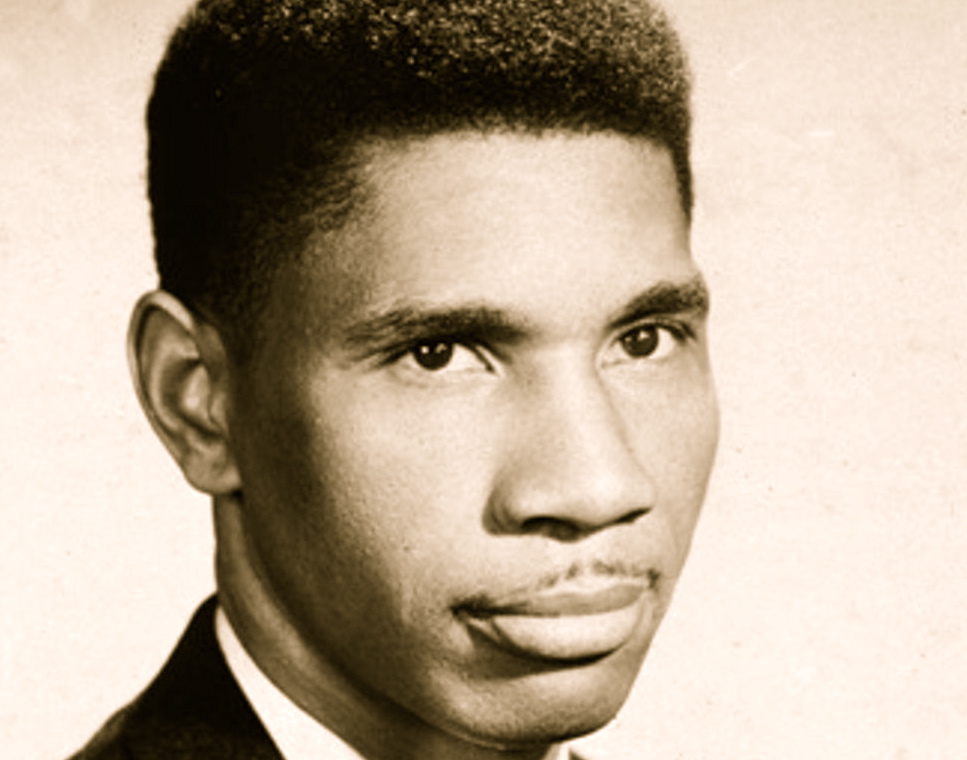Medgar Evers

Medgar Evers Murder, 50 Years Later: Widow Myrlie Evers-Williams Remembers “A Man for All Time”
 Fifty years ago today — June 12th, 1963 — 37-year-old civil rights organizer Medgar Evers was assassinated in the driveway outside his home in Jackson, Mississippi. In the early 1960’s, Evers served as the first NAACP field secretary for Mississippi, where he worked to end segregation, fought for voter rights, struggled to increase black voter registration, led business boycotts, and brought attention to murders and lynchings. We hear from Edgers’ widow, Myrlie Evers-Williams, on how she wants her husband to be remembered “a man for all time, one who was totally dedicated to freedom for everyone — and was willing to pay a price.”
Fifty years ago today — June 12th, 1963 — 37-year-old civil rights organizer Medgar Evers was assassinated in the driveway outside his home in Jackson, Mississippi. In the early 1960’s, Evers served as the first NAACP field secretary for Mississippi, where he worked to end segregation, fought for voter rights, struggled to increase black voter registration, led business boycotts, and brought attention to murders and lynchings. We hear from Edgers’ widow, Myrlie Evers-Williams, on how she wants her husband to be remembered “a man for all time, one who was totally dedicated to freedom for everyone — and was willing to pay a price.”
TRANSCRIPT
This is a rush transcript. Copy may not be in its final form.
NERMEEN SHAIKH: We end today’s show remembering the life of African-American civil rights activist Medgar Evers. In the early 1960s, Evers served as the first NAACP field secretary for Mississippi, where he worked to end segregation and fought for voter rights. It was 50 years ago today, June 12th, 1963, when the 37-year-old organizer was assassinated in his driveway.
AMY GOODMAN: I recently caught up with his widow, Myrlie Evers, at an NAACP dinner here in New York and asked her how people should remember her husband, for whom she sought justice for so many years.
MYRLIE EVERS-WILLIAMS: Well, what I would encourage young people to do is to go online and find out as much as they can about him, his contributions, to go, believe it or not, to their libraries and do research, and to say to them that he was a man of all time, one who was totally dedicated to freedom for everyone, and was willing to pay a price. And he knew what that price was going to be, but he was willing to pay it. As he said at one of his last speeches, “I love my wife, and I love my children, and I want to create a better life for them and all women and all children, regardless of race, creed or color.” I think that kind of sizes him up. He knew what was going to happen. He didn’t want to die, but he was willing to take the risk.
AMY GOODMAN: Talk about where he was coming from that night that he was killed in your driveway.
MYRLIE EVERS-WILLIAMS: Medgar was coming from a mass rally that we had two or three times a week, actually. And there had been a meeting after that session, and he was on his way home. I know how weary he was, because he got out of his car on the driver’s side, which was next to the road where the assassin was waiting, and we had determined quite some time ago that we should always get out on the other side of the car. And that night, he got out on the driver’s side with an armful of T-shirts that said “Jim Crow must go.” And that bullet struck him in his back, ricocheted throughout his chest, and he lasted 30 minutes after that. And the doctors said they didn’t know how he did. But he was determined to live. The good thing, his body is not here, but he still lives. And I’m very happy, proud and pleased to have played a part in making that come true.
http://www.democracynow.org/2013/6/12/medgar_evers_murder_50_years_later

